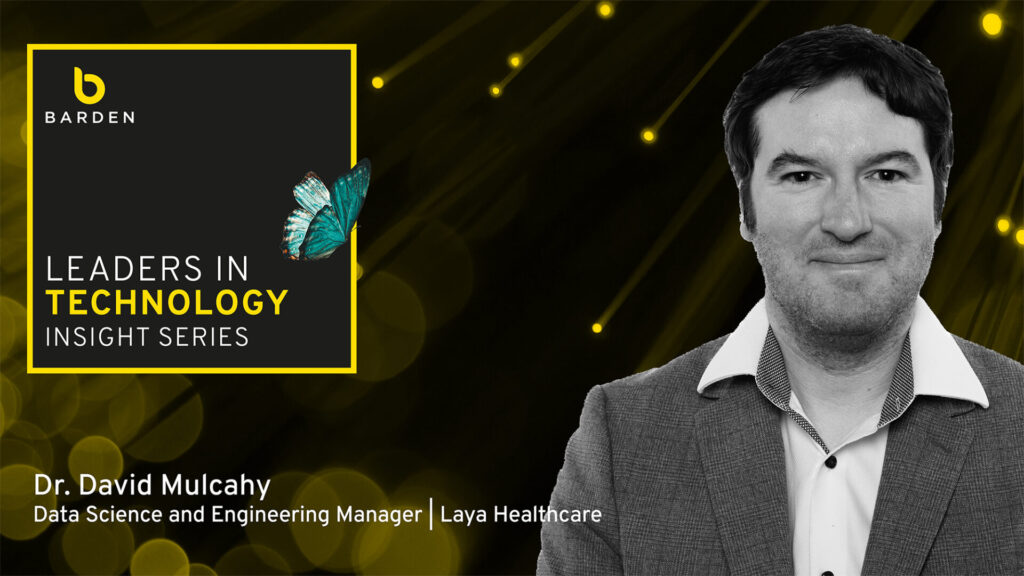Can you tell us about your background and career to date?
My career has been quite diverse. I started with a bachelor’s degree in astrophysics at UCC, then joined a graduate programme in Japan as an international sales engineer in Osaka, focusing on supporting our foreign clients with our eyewear products. After a few years, I returned to astrophysics, earning a PhD in Bonn, Germany, researching magnetic fields in nearby spiral galaxies with advanced low-frequency radio telescopes like the Low Frequency Array (LOFAR).
Post-PhD, I worked as a postdoctoral researcher in Southampton and then at the Jodrell Bank Observatory in Manchester. When my postdoctoral research ended, I transitioned to data science, leveraging my coding and data skills. I taught myself machine learning and worked as an algorithm researcher and data scientist at INRIX, a traffic analytics company in Seattle. I then worked for a law firm in Leeds before moving back to Ireland, where I now manage the data engineering and data science teams at Laya. It’s been quite a varied journey, to say the least.
Where is Laya in terms of the analytics journey? When you joined, were there already good systems in place, or were you brought in to bring things up to speed?
When I joined, our data and analytics journey was just starting to take off. This journey began about 6 to 12 months before I came on board, and there wasn’t a dedicated data science team established, so we had to build it from scratch.
We’ve focused on enhancing our data warehouse and infrastructure to support advanced analytics and data science. Having the right structures and foundations is essential for data science success, including good data quality and a robust, efficient, and secure data warehouse for research, analytics, and reporting.
For the past two to three years, my main focus has been building this foundation while the data scientists demonstrated the value data science can bring to Laya. Showing early results and value was essential, as developing machine learning algorithms takes time. We needed to achieve quick wins and prove our worth early on, rather than waiting 12 or 24 months to see results.
What are your top priorities over the next 18 months?
Our main priority is to enhance our data warehouse so analysts can self-serve even more efficiently. We use a hub-and-spoke model with analysts embedded throughout the company, and improving this process will significantly reduce turnaround times for analytics projects.
On the data science side, we aim to continue delivering successful data science and machine learning models. We want more areas of the business to see the value of data science and start using data to drive their decisions and processes. While Laya is already on this path, demonstrating early results is crucial for continued progress.

Are there any technologies that you see in the business that you have already, or from an outside perspective, that you think could have a major impact on what you do?
Absolutely. I imagine everyone has mentioned this, but generative AI is going to be the big thing. The number of use cases we’re discussing across our business will be, in my opinion, transformational. I wouldn’t necessarily say it will be disruptive, but it will enhance various aspects of our lives in ways we might not fully understand for another 10 to 15 years much like how the internet has changed our daily lives. When AI tools become normalised, the possibilities for increased productivity and improved customer service are immense.
For example, AI will significantly enhance how our customers interact with us. The coming years will be interesting for everyone in the workplace, as jobs will evolve due to these technologies.
We are also looking at technologies like Co-Pilot, which will assist with coding and allow users to query data in plain English. For instance, someone could ask, “What are the sales trends for the last five years?” without needing technical skills. This will not only make data more accessible to the entire team but also insights. I can see us moving from data democratization to insight democratization due to generative AI.
For someone starting their career with a data science or data analytics degree, what advice would you give them to build their skill set and succeed?
Tech skills are always important, but when I’m hiring, I focus on both sides of the coin. On one side, we have hard skills like coding in SQL or Python and having a good problem-solving mindset. On the other side, soft skills are crucial—being able to interact with the business, asking the right questions, and effectively communicating the work you’ve done. In my experience, the challenge is finding candidates who possess both of these sets of skills. It’s rare to find someone who is highly technical and is also able to explain complex topics to a non-technical audience. Understanding business processes, gathering requirements and identifying improvements is just as important as technical proficiency.
Looking ahead, I think data jobs will change significantly. The technical skills will become a little less critical due to Gen AI, but the soft skills, the communication, that’s only going to become more important for data practitioners. The future’s hard to predict, but one thing’s for sure: being a great communicator will be key as the data landscape evolves.
Are there discussions about the potential downsides of new data technologies, like data privacy, ethics, and data centre sustainability?
Absolutely. We have strong ESG (Environmental, Social, and Governance) initiatives and we are actively thinking and planning around these issues. From an energy perspective, we’re focused on reducing waste and our carbon footprint. Regarding data privacy, we take it extremely seriously. Any AI tool or technology we use undergoes rigorous risk assessments and processes to ensure compliance. We regularly meet with ethics and privacy officers to ensure our practices are above board. These topics are indeed very interesting and important. The challenge with AI is that it evolves so quickly, while legislation tends to lag behind. The EU AI Regulation Act is a step in the right direction, but it will take time for global regulations to catch up. As companies, we need to be prepared for when these regulations come into effect.


 Jump Back
Jump Back

